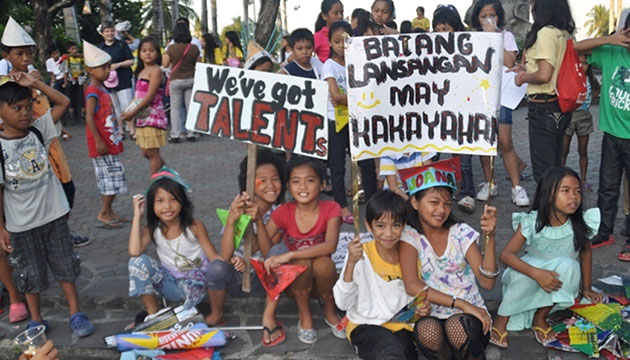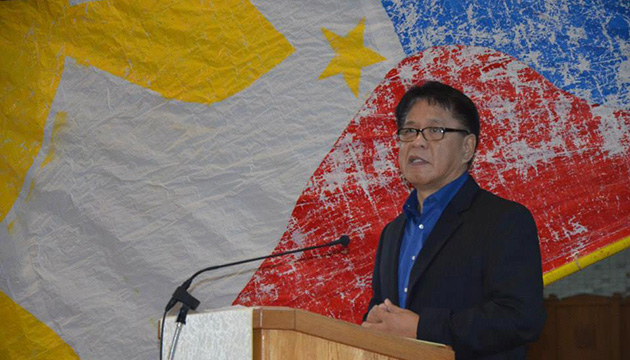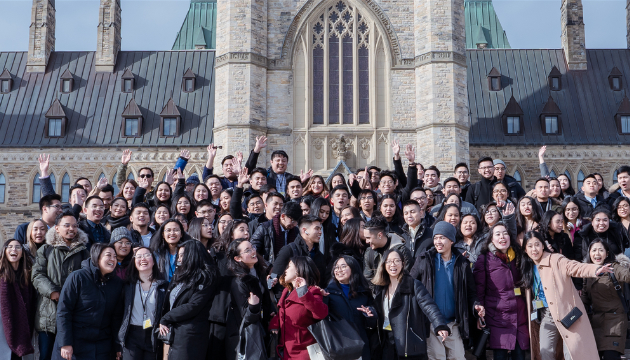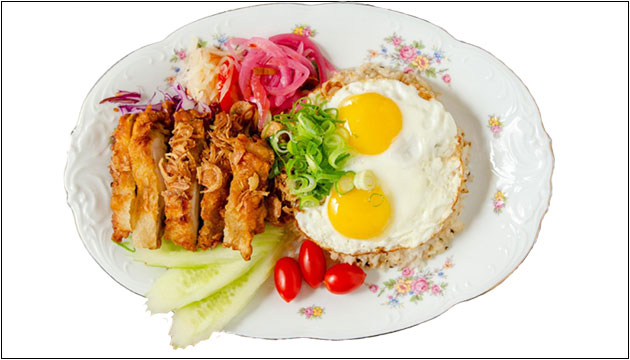Thanks to feedback from readers and supporters. The Canadian Filipino Net’s editorial board is introducing changes to improve its website.
There will be a monthly theme, and a new format that is more magazine-like with articles on issues of general interest being analytical, documented, interpretative, longer, meditative or provocative to help readers think more clearly about questions and problems that matter to Canadian Filipinos.
In July, the focus was Filipinos in Canadian politics. This month the theme is the 1.5 generation. The term 1.5 generation was first coined in the United States to describe people who immigrate to a new country before or during their early teens. In Canada the term refers to immigrants who arrive young with their first generation immigrant parents and grow up in Canada. They bring values and culture from the home country and combine them with the characteristics of the new country in the socialization process of integration. They are considered “halfway” between the first generation (defined as the first among the family to immigrate to the new country) and second (or 2.0 generation), those born in åthe new country of first generation parents.
The 1.5 generation’s age at immigration, the quality of education they received in the home country, the expectation and aspirations of their parents, and the kind of community they settle in will largely affect their experiences growing up in the new country. These experiences will, in turn, influence their identification with the old country and their integration into the new society.
Depending on these and other factors, the 1.5 generation Filipinos will identify with the Philippines to varying degrees. However, their integration into Canadian society will be affected by their experiences growing up in Canada. For example, if their transition from Filipino to Canadian Filipino is seamless, they may find it easier to be assimilated into the local culture and society than their first generation parents.
Unfortunately, the federal government’s Live-in Caregiver (LCP) and the Temporary Foreign Workers (TFW) programs have made integration for some 1.5 generation Filipinos difficult (see main article on front page). From the late 1990s to the present, the Philippines has been Canada’s major source country for TFWs, which include caregivers. Due to push factors in the Philippines, their; temporary immigration status and insecurity of employment, TFWs; are forced to occupy low-income, low-status jobs that Canadians do not want, while separated from their families for many years. Yet they endure the sacrifice in the hope that their children will have brighter futures once they get to Canada.
Alas, the future has not been that bright for some 1.5 generation Filipinos belonging to this disadvantaged group. Poverty which their parents tried to escape from in the Philippines has seemingly dogged them in a different form. While they may be relatively better off in Canada where it’s easier to borrow money, buy a used car and find low-income casual jobs, their quality of life has not greatly improved. Nor their future. Some young Filipinos are unable to continue studying because they need to work and contribute to the family income and send money to poorer relatives in the home country.
In an affluent country like Canada, it is lamentable that these young Filipinos cannot afford to dream of a better future due to a couple of short-sighted Canadian immigration programs. Since they are already in Canada as permanent residents and future citizens, it is prudent for the new Liberal government of Prime Minister Justin Trudeau to make sure that they don’t grow up misfits and disillusioned causing social unrest like what has been happening in Europe today.
A possible solution to this problem is to upgrade the requirements for caregivers and reclassify them as skilled with landed immigrant status on arrival. This will prevent long familial separation and give them respect, security, and reasonably decent lives with living wages. After all they do provide essential services and save the government from the costly institutional care for the young and the elderly.
As for temporary foreign workers who are working two or three jobs beneath their professional level due to non-recognition of their foreign training and education, the loss of their talents and experiences to Canada is tremendous. Their “deprofessionalization” also sends wrong messages to their children: that education does not matter; that a profession is no guarantee of a good job; that low-paying jobs are all that immigrants are good for. Sadly, with no achiever models to look up to and inspire them, some 1.5 generation Filipinos are sometimes content to work in fast food chains, making sandwiches or busing tables. If the government could make the assessment and accreditation of foreign credentials easier and faster to achieve, it would solve many Canadian labour demands and immigrant needs for suitable jobs.
Fortunately, majority of recent Filipino migrants and their 1.5 generation are faring well. Canadian Filipino Net invites them to share their stories, ideas, issues and concerns. It hopes to start a long and fruitful conversation with them. Hopefully, this focus on the plight of some struggling 1.5 generation Filipinos will connect these youngsters with groups that can assist them.
Because the 1.5 generation Filipinos combine both Philippine and Canadian cultures, values and experiences, they play a valuable role as "cultural navigators" for non-Filipinos and second generation Canadian Filipinos. They also serve as "cultural bridges" between generations and between Filipinos and other cultures. Canadian Filipino Net invites the 1.5 generation to join its campaign to connect Canadian Filipinos from coast to coast to celebrate CanadianFilipinoness.
By Eleanor R. Laquian for
The CFNet Editorial Board
Contact us at:










